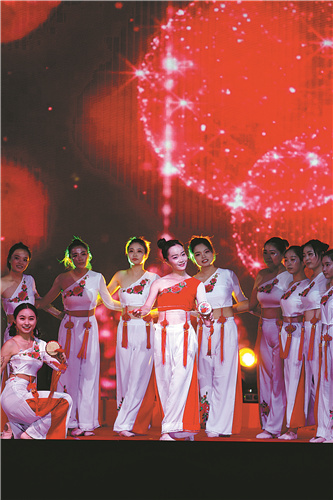

But instead of becoming a prosperous place as Zhu had planned, the region often suffered from famine, but the emperor did not allow the people to leave the county to beg for food, so many people had to disguise themselves as traveling opera players.
After leaving Fengyang, the people went to other parts of China, mostly relying on playing the flower-drum dance to ask for offerings.
One of the songs sang by the beggars begins with "Let's say about Fengyang, let's say about Fengyang; Fengyang was once a place so nice; but after Zhu Yuanzhang ascended the throne, famines have been seen in nine of 10 years."
A book written in the Qing Dynasty (1644-1911) said, "the tones were quite sorrowful, telling distressing stories of people leaving their home".
Such scenes were repeated in the 1970s.
Until 1978, Xiaogang was hit hard by national setbacks such as the great famine, and when a devastating drought followed the "cultural revolution" (1966-76), farmers were bonded by the collectivized farming policy. No matter how much they grew, they could only rely on the rationing system.
As a result, many local farmers thus fled to cities to beg for food, many of whom performed folk art to earn their handouts.
In stark contrast, the gala show held in the city's massive stadium on Sept 23, the day of the national Farmers' Harvest Festival, consisted of dozens of joyful performances by hundreds of performers from across the country.
The show, held eight times since 2008, was scheduled to be held last year but had to be postponed due to COVID-19, according to Yang Yan, executive of Chuzhou Performance and Arts Group.
"The performers all try to show the audience the colorful nature of rural culture," says Yang.